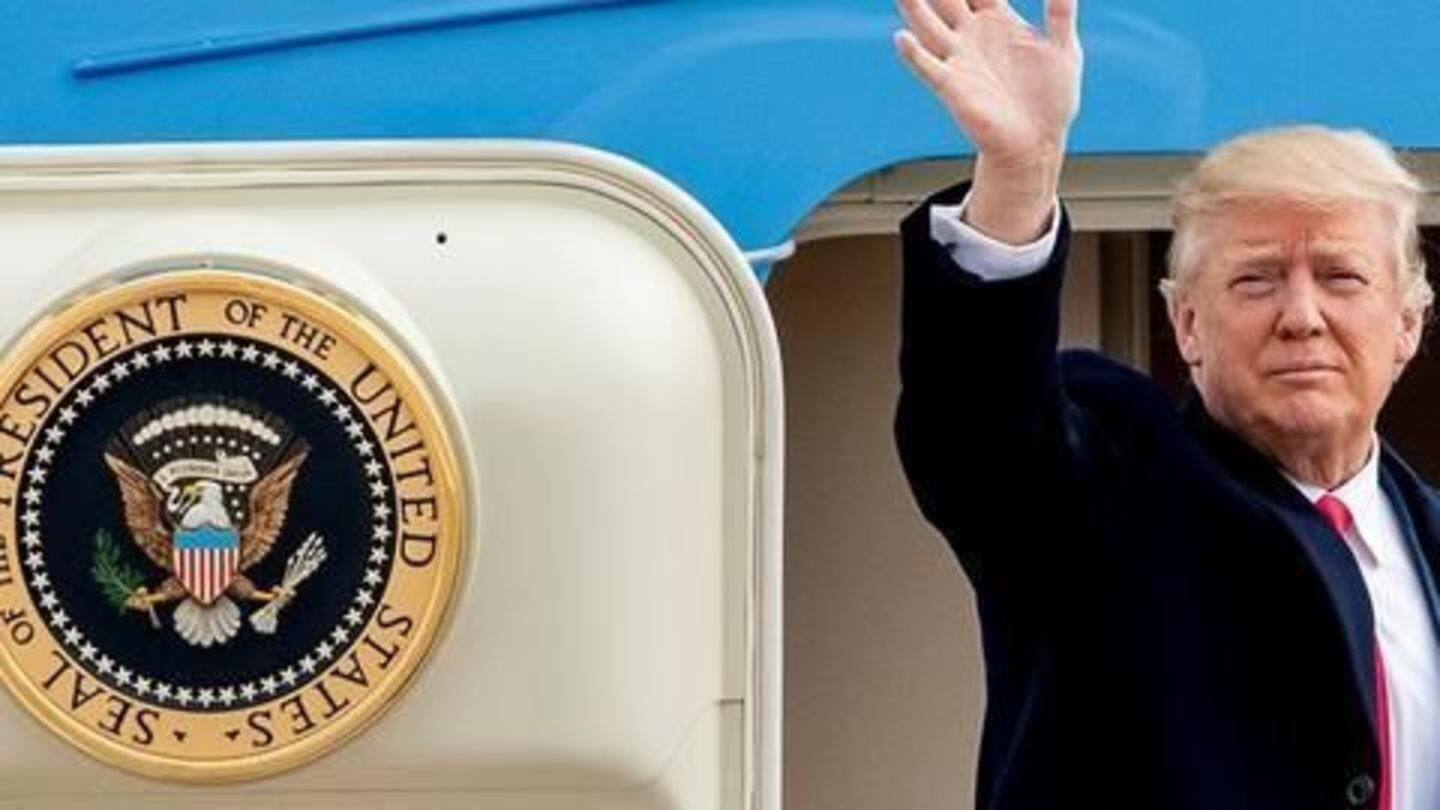
Step up in fight over 'Islamist-extremism': Trump to Arab leaders
What's the story
On his first foreign trip as President to Saudi Arabia, Donald Trump revised his anti-Islam rhetoric and classified the fight against terrorism as one between good and evil. Speaking at the Arab-Islamic American Summit in Riyadh, he further urged Arab leaders to combat the "crisis of Islamism emanating from their homelands". Let's see if Trump's foreign policy has recast Islam in a new light!
Context
What context is this happening in?
Growing revelations from a federal investigation on the Trump campaign's links to Russia are eroding the Trump administration's credibility. He further fired former FBI director James Comey, who was in charge of the probe, adding fuel to the fire. Trump is currently undertaking a 9-day foreign tour, with his first stop at Saudi Arabia. He is further scheduled to visit Israel, Palestine and Europe.
Background
Trump's anti-Islam rhetoric- What has happened till now?
Trump has criticized Barack Obama for refusing to use the term "radical Islamic extremism" and has said that he thought, "Islam was our enemy". Right after coming to power, he issued the immigration ban under which people from seven Muslim-majority countries including Syria, Iran and Iraq. Departing from Obama administration orchestrated rapprochement, Trump administration has also demonstrated a critical stance against Shia-dominated Iran.
Details
What is he saying now?
Addressing a gathering of more than 50 Arab and Muslim leaders, Trump noted, "we are not here to lecture.... or how to live or worship, instead we offer partnerships based on shared interests and values." He further sought to chart a new course to US relations with the Middle East, shifting the focus from human rights and democracy promotion to uprooting terrorism.
Diplomatic relations
Rekindling bonds
Trump pointing fingers at Iran for spreading "destruction and chaos in the region", resonated with countries including Saudi Arabia, which seconded the opinion. In a meeting with Egyptian President Abdel-Fattah el-Sissi, he further underscored friendship with Egypt. Trump further participated in a round table conducted by the Gulf Co-operation Council and met with leaders from Qatar and Bahrain.
Analysis
What does this mean?
White House officials consider the speech as an appropriate counterweight to Obama's speech in Cairo in 2009, whereby he acknowledged US mistakes in the Middle East, much to the scorn of Republicans. Renewed ties with Middle Eastern countries, based on counter terrorism co-operation, along with a toughened stance against ISIS can help prompt countries including Saudi Arabia to cut down on terrorist financing.